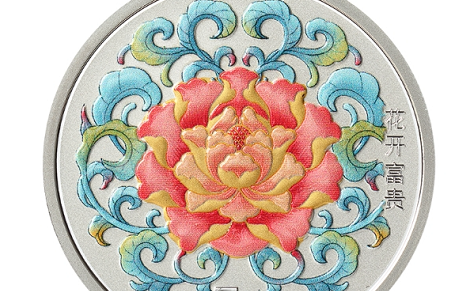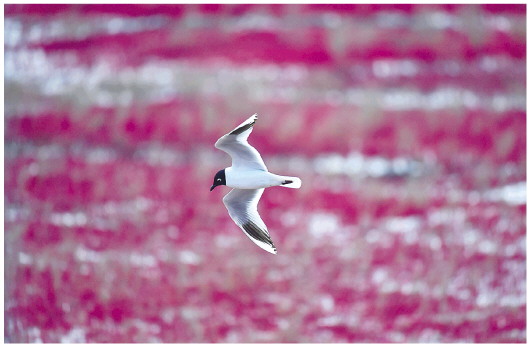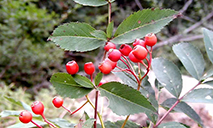Interview: Deforestation a major challenge for Madagascar to protect its biodiversity, says WWF official
ANTANANARIVO, May 22 (Xinhua) -- Madagascar, an Indian Ocean island that is home to a large number of endemic species such as lemurs, is facing challenges such as deforestation and illegal logging in protecting its biodiversity, a World Wildlife Fund (WWF) official has said.
Madagascar has lost 4,300,000 hectares of forest cover in the last 20 years, Tiana Ramahaleo, conservation director of WWF Madagascar, said in an exclusive interview with Xinhua ahead of the May 22 International Day for Biodiversity.
"That means we have lost about 1 percent of our forest cover per year, which is really huge," Ramahaleo said.
"People have converted the forest into agricultural land or exploited the trees to make charcoal, or for timber," he said.
Another challenge facing the country is the illegal exploitation of species, Ramahaleo said.
"It's rosewood; that's well known. But there are also radiated turtles that are exploited for export. There is also the poaching of turtles, but also the lemurs. They are hunted, killed and eaten in several places in Madagascar," he said.
"Madagascar is among the 'megadiverse countries' in the world. There are 17 countries that are in this list because of their richness in biodiversity and their endemism," Ramahaleo said.
"If we talk only about lemurs, all 107 species are endemic to Madagascar," he said. "Like lemurs, almost all the amphibians in Madagascar are endemic and you don't see them anywhere else."
"It is the same with the radiated tortoises which are found in the southwest of Madagascar," Ramahaleo said.
"For reptiles, the country has 389 species, 90 percent of which are endemic to Madagascar," he said.
In addition to the endemic fauna, "it is estimated that there are about 14,000 species of plants in Madagascar, 80 percent of which are endemic, Ramahaleo said.
Madagascar has 12,000 species of vascular plants, 96 percent of which are endemic, he added.
"This is a world heritage. If we lose them in Madagascar, they will be lost to the world," Ramahaleo said.
In addition, he said, COVID-19 has also had negative impacts on biodiversity in Madagascar, because "people could not move around, could not always carry out their daily activities of managing protected areas."
Moreover, fires in protected areas have increased by 248 percent in Madagascar, he said, citing a 2020 study.
To fight against this degradation of biodiversity, Ramahaleo said, Madagascar must enforce strict laws and empower communities living near the forests.
The WWF has been supporting the communities do regular patrols in the forests to detect biodiversity offenses and report them to the authorities, he said.
As biodiversity degradation is closely linked to the poverty of the communities living near the forest, the WWF has also been helping them strengthen their livelihoods by finding economic alternatives and getting more integrated into value chains, Ramahaleo added.
Photos
 China’s central bank to issue commemorative coins on cultural theme of auspiciousness, including two heart-shaped coins
China’s central bank to issue commemorative coins on cultural theme of auspiciousness, including two heart-shaped coins Population of endangered black-headed gulls exceeds 10,000 mark in NE China’s coastal city of Panjin
Population of endangered black-headed gulls exceeds 10,000 mark in NE China’s coastal city of Panjin China's self-developed floating airship breaks record
China's self-developed floating airship breaks record Chinese germplasm bank conserves biodiversity in warm temperate zone
Chinese germplasm bank conserves biodiversity in warm temperate zone
Related Stories
- NW China’s Qinghai welcomes larger numbers of migratory birds thanks to consistent conservation efforts
- China's Jiangsu documents 857 new species
- Rare golden cat spotted in SW China’s Tibet for first time
- Over 4,200 endangered cranes spotted at China's largest freshwater lake
- Dujiangyan in Sichuan intensifies efforts to protect wildlife
Copyright © 2022 People's Daily Online. All Rights Reserved.






